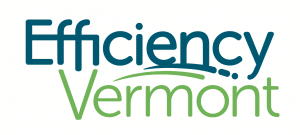When was the last time you thought about your home’s insulation? If you’re like most homeowners here in New England, we’d venture to say that it’s been a while. While insulation is often out of sight and out of mind, it’s one of the most important things for keeping your house comfortable and your energy bills down.
Is your home properly insulated, or is it time for an insulation upgrade?
How Insulation Keeps Your Home Comfortable
Before we get into specifics on exactly how much insulation your home needs, it’s important to understand how insulation works in the first place to keep you and your family comfortable.
Insulation functions as a thermal barrier around your living spaces. In the winter, it keeps indoor heat from escaping your house through the walls, floors, ceilings, and roof. In the summer, it keeps outside heat from seeping in through these same areas. Some types of insulation, such as spray foam, also seal air leaks and prevent moisture migration into your walls.
How Much Insulation Is Enough?
Different areas of your home need differing levels of insulation. Insulation levels are specified by R value. The higher the R value, the more effective the insulation.
Attics, for example, typically need an insulation level between R49 and R60. That’s enough insulation to cover the attic floor joists. Floors, meanwhile, don’t need quite as much insulation — usually R30.
How well insulated your home is depends on which types and how much insulation are used; so it’s best to have a professional assess your home’s insulation levels.
Signs That Your Home Is Under-Insulated
When enough insulation is installed correctly in key areas like the attic, floors, and walls, you can expect to stay comfortable indoors no matter the temperature outside. You can also expect lower annual heating and cooling costs, as your HVAC equipment doesn’t have to run as often.
Unfortunately, many homeowners here in New England don’t experience these perks — especially during the winter. If you notice any of the following inside your home this winter, chances are it’s time to install new insulation:
-
Fluctuating indoor temperatures
-
Hard-to-heat rooms
-
Indoor drafts
-
Cold floors
-
Insulation that has visibly settled
-
Insulation that has been damaged by water or pests
-
High energy bills
Have Us Assess & Upgrade Your Insulation
Proper insulation is essential for true home comfort and energy efficiency. The best way to find out if your house is under-insulated is to have an insulation contractor conduct an energy audit. This in-depth inspection will reveal exactly where insulation gaps are, so you can plan your next insulation upgrade accordingly. As insulation experts serving Vermont, Massachusetts, and New Hampshire, we’re ready to help you diagnose your home!








